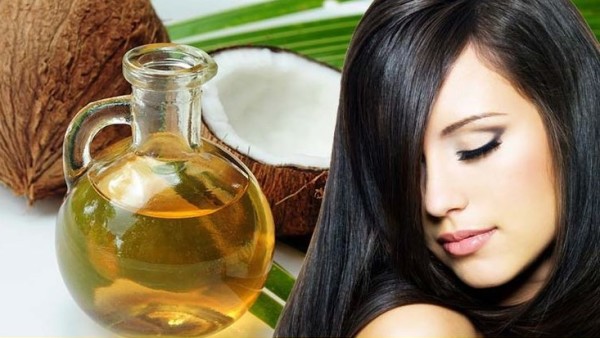Did you know that extreme and harsh climates are bad for your skin as well as your hair?
Atmospheric changes can have a negative impact on your hair, making it fragile and leading to severe hair damage.
It turns out that every season has its own unique threats for the hair, and what is important is how you take care of your hair during extreme climatic conditions.
In the summer season, the prolonged exposure of your hair to the sun can result in hair damage because the heat dries out the hair and disrupts the cells of the cuticle causing the hair to become brittle and prone to breakage.
The cold air during winter is unbearable at times and your hair finds it harder to retain its moisture and ends up being frizzy, brittle and at risk of breaking and damage whereas in the rainy season, the water is bad for your hair because it comes mixed with the pollutants in the air.
People living in desert regions also get affected by the heat, humidity and other elements that can cause hair damage. Following some effective hair care tips during harsh climates can protect your hair and retain its health and sheen.
- Apply UV protection to your hair when you step out.
- Cover your hair with a protective layer, i.e. by wearing a hat or scarf over your hair, to keep it healthy. Overexposure to harsh climates can cause your hair color to fade quickly.
- If you are going to swim in a pool or sea, apply a thick conditioning cream or oil to your hair and cover it with a swim cap. This will help to lock the moisture in the hair and will also prevent your hair from absorbing chemicals that are present in the water.
- Don’t leave your hair open or loose when you are outdoors because it’s more prone to dryness and damage. Tie up your hair in fashionable hairstyles when you are heading out, so that any damage due to adverse weather conditions can be minimized.
Hair Washing
Make sure to keep your hair clean from dirt and other impurities during extreme climatic conditions. But don’t over wash your hair, because by doing so you are stripping away the natural oils in your scalp, which can negatively affect your hair growth. There are a few things to know before you wash your hair:
- Don’t use hot water to wash your hair, as it can harm your hair and result in split ends. Instead, use cool water or lukewarm water, so that the natural moisturizing element of your hair gets locked in. Limit your hair washing to two to three times a week.
- Massage your hair with some natural oils before getting into the shower to condition your hair. Oils can be coconut, olive, almond or any other natural oil. Oiling your hair helps to minimize breakage and hair loss. The frequency of a good oil massage should be increased during autumn and winter because during these seasons your hair is prone to dryness.
- Shampooing is the best way to clean your hair but, choose the right shampoo. Sometimes the adverse climatic conditions may make your hair dry and brittle, in such cases excessive shampooing or shampooing with a formula that’s too harsh for your dry hair can strip away your hair’s natural oils. Depending upon your hair’s condition, choose an appropriate shampoo and apply some conditioner to lock that moisture in your hair, so that your hair doesn’t become fragile and break.
Hair Drying
Not drying your hair properly can indirectly affect the health and appearance of your hair, be it in any climate. Try to avoid the use of hair dryers, because they cause the same damage that heat styling tools do. The best way to dry your hair is apply some leave-in conditioner all over your hair and let it air dry naturally.
- Straight after your shower, pre-dry your hair with a microfiber towel softly. Don’t rub your hair hard because wet hair is more vulnerable to damage.
- If you can’t avoid using blow dry then do it once your hair is 70% dry, because this will reduce heat damage and give time for your hair cuticles to get closed.
- While blow drying your hair, make sure you are not holding the device too close to your hair; keep it at a distance from your hair with the nozzle pointing straight down.
Brushing Hair
Harsh weather can create knots and tangles in your hair, which if not properly combed can cause hair breakage. So while combing, keep in mind a few tips that can help in easy detangling with less hair loss.
-
- The best time to detangle your hair is when you are in the shower with conditioner in your hair. You hair would be soft and manageable, making it easy and less painful while detangling.
- For tangled hair use boar bristle brush or wide-tooth comb and avoid brushes, as it can pull or tear the hair.
- Always brush your hair from bottom to scalp, slowly. This may sound unnatural but this allows you to tackle the knots and tangles along the hair shaft without risking pulling your hair follicle out of its root. Detangling from roots to bottom can create many knots and can lead to more breakage.
Styling Hair
You may be having a hard time managing your hair in harsh climates, don’t make it harder by using styling tools such as blow-dryers, flat irons, curling irons and hot rollers that make your hair look amazing, but at the same time are unhealthy for your hair. High temperatures strip the hair strands of their natural moisture, especially in the case of irons and rollers which come in direct contact with dry hair.
- If you still want to use styling tools, then try to limit your heat styling to once or twice a week and always use a heat protectant on your hair before straightening or curling as it acts as a barrier between your hair and the heat, thus protecting your tresses from damage.
- Similarly, it’s better to consider a loose style or approach hair professionals as they would have more of an idea regarding how much heat your hair can take. It’s also a well-known fact that experimenting too many different hairstyles lead to receding hairlines.
- Avoid using rubber bands or hair elastics that have a metal part in the middle, as it can cause hair breakage, instead tie your hair with soft hair elastics.
Natural Treatments for Nourishing Your Hair
While using products such as shampoo, conditioner and other styling products, it’s also important that you use some natural treatments for your hair. Natural home remedies can nourish your hair from root to bottom, giving you a fresh look and feel. Here are some hair masks that you can apply to moisturize and strengthen your tresses:
-
- Apple cider vinegar mask: This mask is ideal to treat your dry and damaged hair. Mix 1 tablespoon apple cider vinegar, 2 tablespoons olive oil, and 3 egg whites together and apply it all over your hair. Leave this hair mask on for 30 minutes before shampooing your hair.
- Egg mask: One of the most powerful hair masks, because eggs are full of protein, nutrients and B-complex vitamins that serve as “hair food”. Egg yolks are rich in lutein, which helps hydrate your hair and improve its elasticity. Separate one egg white in a bowl and add a teaspoon each of olive oil and honey. Beat it to make a paste and apply it all over the hair from the root to the tips. After 20 minutes, rinse it off with cool water and a mild shampoo.
- Yogurt mask: Dampen your hair and massage half a cup of yogurt onto it. Leave it on for 20 minutes before shampooing your hair as usual.
- Green tea: The positive effects of green tea, especially matcha green tea, have been well documented. Having a few sips of matcha every day can greatly help in reducing hair fall, and having lustrous healthy hair.
Other ingredients such as castor oil, aloe vera, coconut milk, fenugreek seeds and so on make good natural treatments for your hair. A healthy diet can contribute towards healthy hair. Drink lots of water and eat healthy fruits and vegetables that can trigger hair growth, nourish the hair, and stop hair loss.
Author Bio: Catalin is the founder of Ecommerce Platforms and Web App Meister. He blogs about matcha, Japanese lifestyle, and mindfulness at Matcha-tea.com. He’s a design enthusiast and loves matcha, and is uber passionate about blockchain technology and travel.



